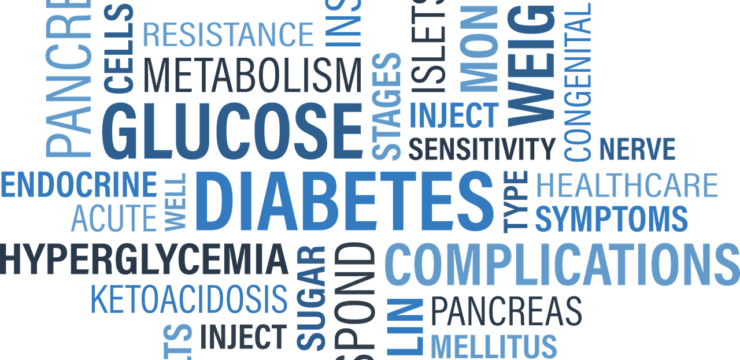Hormones are mainly thought of in regards to menstrual cycles, puberty, carrying a baby, and sex drive. However, in reality, hormones are much more than that. Hormones create a delicate balance in homeostasis and with too little or excess, many problems arise.Â
There are different types of hormones in the body. The most commonly referred to hormones are sex hormones. These include Estrogen (estrone, estradiol, and estriol), progesterone (differentiation), testosterone, and DHEA. Estrogens primary role is growth. When evaluating estrogen, practitioners take into account the Estrogen Quotient. This is used by dividing the sum of estrogen plus estradiol. The lower the estrogen quotient, the higher the risk of breast cancer. Â
Progesterone helps the cells become what they were meant to be and how to function the way they are intended to function. Progesterone is critical as it promotes healthy sleep patterns, improves insulin resistance, burns fat for energy, is an antidepressant, and is the primary hormone in pregnancy. Although progesterone has many benefits, too much of a good thing has repercussions. Too much progesterone turns into estrogen dominance (seen in reproductive years, PMS, and menopause). Elevated levels of progesterone manifest in symptoms such as anxiety, irregular periods, mood swings, breast cancer, postpartum depression, weight gain, heavy periods, food cravings, and headaches.Â
DHEA is secreted by the adrenal glands. This is a prohormone for testosterone and estradiol. DHEA increases with age and can be elevated in women who have insulin resistance. The primary roles are libido, motivation and wellbeing, improves immune function, REM sleep, and memory.
Diagnostic Testing
It is clear that these hormones are essential and their balance is crucial. In order to determine if individuals’ hormones are off-balance, the clinic uses the DUTCH PLUS test from DUTCH. This test is a urine and saliva sample that is collected throughout a 24-hour time frame, allowing us to track hormone and cortisol levels. A sample report is shown below:Â
Â
Phase Angle
Phase angle is how health care professionals can monitor the integrity of cellular membranes. If the phase angle begins to decline, it has been linked directly to a decline in overall health. Similar to if phase angle increases, overall health is increasing. The integrity of cellular membranes is essential as cell survival depends on solid membranes. When the cellular wall is weak, it can collapse. From here, it is difficult for the body to take up the proper nutrients it needs. Additionally, with a weak cellular membrane, the cell is left with little to no protection from outside invaders. Stress impacts phase angle by causing individuals to gain weight and decreasing overall health.
We monitor a patient’s phase angle with the use of the InBody 770. This advanced machine allows us to not only track the phase angle of our patients but many other areas of their health as well, including but not limited to intracellular and extracellular water.Â
[embedyt] www.youtube.com/watch?v=WwbIsPNUYqs%5B/embedyt%5D
Phase Angle can decline if the hormone levels are not accurate. For example, if an individual is estrogen dominant, they will have irritability, mood swings, risk of blood clots, weight gain, food cravings, etc. Weight gain and food cravings (leading to more weight gain) cause the phase angle to decrease.Â
HORMONES ARE A MUCH LARGER UMBRELLA THAN MANY REALIZE. THEY ARE CRITICAL TO SO MUCH MORE THAN A MENSTRUAL CYCLE AND PUBERTY. THE LACK OF PROPER HORMONES CAN BE MORE DEBILITATING THAN INDIVIDUALS REALIZE. A GREAT WAY TO COMBAT YOUR HORMONES AND HELP PROTECT YOUR PHASE ANGLE IS TO PRACTICE GOOD SLEEP HYGIENE, EAT PROPER NUTRIENTS, REGULAR EXERCISE, AND MEDITATION. -KENNA VAUGHN, ACSM-EP SENIOR HEALTH COACH
References:Â
Hiller-Sturmhöfel S, Bartke A. The endocrine system: an overview. Alcohol Health Res World. 1998;22(3):153-64. PMID: 15706790; PMCID: PMC6761896.Â
Dr Lylen Ferris. “Moodiness, Madness, or Menopause.†Funcitonal Medicine University (FMU).Â
Additional Online Links & Resources (Available 24/7)


Â
Online Appointments or Consultations:  https://bit.ly/Book-Online-Appointment


Â
Online Physical Injury / Accident Intake Form: bit.ly/Fill-Out-Your-Online-History


Â
Online Functional Medicine Assessment: bit.ly/functionmed
Â
Â
Â
Disclaimer
Â
The information herein is not intended to replace a one-on-one relationship with a qualified health care professional, licensed physician, and is not medical advice. We encourage you to make your own health care decisions based on your research and partnership with a qualified health care professional. Our information scope is limited to chiropractic, musculoskeletal, physical medicines, wellness, sensitive health issues, functional medicine articles, topics, and discussions. We provide and present clinical collaboration with specialists from a wide array of disciplines. Each specialist is governed by their professional scope of practice and their jurisdiction of licensure. We use functional health & wellness protocols to treat and support care for the musculoskeletal system’s injuries or disorders. Our videos, posts, topics, subjects, and insights cover clinical matters, issues, and topics that relate and support, directly or indirectly, our clinical scope of practice.* Our office has made a reasonable attempt to provide supportive citations and has identified the relevant research study or studies supporting our posts. We provide copies of supporting research studies available to regulatory boards and the public upon request. We understand that we cover matters that require an additional explanation of how it may assist in a particular care plan or treatment protocol; therefore, to further discuss the subject matter above, please feel free to ask Dr. Alex Jimenez or contact us at 915-850-0900.  Read More…
Dr. Alex Jimenez DC, MSACP, CCST, IFMCP*, CIFM*, CTG*
email: coach@elpasofunctionalmedicine.com
phone: 915-850-0900
Licensed in Texas & New Mexico




